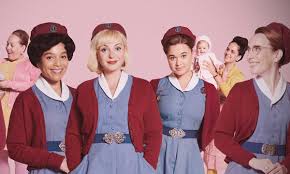Nursing and Midwifery:
Nursing and midwifery are the twin pillars of healthcare that provide a backbone for patient care, community health, and maternal well-being. Often perceived as nurturing professions, they are, in fact, a blend of advanced clinical skills, compassion, and critical thinking. This blog delves into the vital roles, challenges, and future prospects of nursing and midwifery, highlighting why these professions are indispensable in modern healthcare.
Understanding the Role of Nurses and Midwives

Nurses and midwives serve in different capacities, but their primary aim remains the same: to provide patient-centered care that ensures physical, emotional, and psychological well-being.
The Role of Nurses
Nurses are healthcare professionals who are involved in a range of activities, from administering medication and monitoring patient vitals to providing health education and advocating for patient welfare. Their responsibilities vary depending on their specialty and setting, whether it’s a hospital, clinic, community center, or even schools. A few of their key duties include:
Patient Assessment and Diagnosis:
Nurses are often the first point of contact for patients and perform initial assessments to determine the severity of illness or injury.
Care Planning and Implementation:
They develop personalized care plans, coordinate treatments, and collaborate with doctors and specialists.
Health Education and Advocacy Nursing and Midwifery
Nurses educate patients and families about their health conditions, treatments, and preventive measures, acting as advocates for patient rights.
The Role of Midwives
Midwives specialize in maternal and child health, supporting women throughout their pregnancy, childbirth, and postpartum period. Their responsibilities include:
Prenatal Care:
Conducting health assessments, monitoring fetal development, and providing nutritional advice.
Labor and Delivery Support: Assisting in safe and natural births, managing complications, and providing emotional support.
Postnatal Care:
Guiding new mothers in breastfeeding, newborn care, and reproductive health counseling.
Midwives are crucial in reducing maternal and neonatal mortality rates, especially in communities with limited access to healthcare services. Their role extends beyond delivering babies—they are skilled practitioners trained to handle emergencies, promote family planning, and ensure maternal health.
Challenges Faced by Nurses and Midwives
Despite the essential roles nurses and midwives play, they often face several challenges that impact their efficiency and well-being.
Staff Shortages and Burnout
One of the most significant issues is the chronic shortage of healthcare staff, particularly in nursing and midwifery. With the global population aging and healthcare needs increasing, the demand for these professionals is skyrocketing. Staff shortages lead to excessive workloads, long hours, and high stress levels, contributing to burnout and attrition.
Limited Resources and Support
In many settings, especially in low-income countries, nurses and midwives work with limited resources and inadequate support. They may lack access to essential equipment, medications, and professional development opportunities, making it challenging to provide optimal care.
Professional Recognition and Career Advancement
Nurses and midwives often struggle with professional recognition. While their contributions are undeniable, they may face barriers to career advancement and decision-making positions within healthcare organizations. Advocating for better professional status and equal opportunities for growth remains a crucial concern.
The Future of Nursing and Midwifery
The future of nursing and midwifery is evolving, driven by advancements in technology, changing healthcare needs, and a growing emphasis on holistic care.
Integration of Technology
Technology is revolutionizing healthcare delivery, and nursing and midwifery are no exceptions. From telehealth and electronic health records to wearable devices and AI, nurses and midwives are leveraging technology to improve patient outcomes, enhance diagnostics, and streamline administrative tasks.
Expanding Roles and Responsibilities
The roles of nurses and midwives are expanding beyond traditional boundaries. Advanced practice nurses (such as nurse practitioners) and certified nurse midwives are now able to perform more complex procedures, prescribe medications, and provide primary care services. This shift is particularly important in rural or underserved areas, where access to doctors may be limited.
Emphasis on Holistic and Preventive Care
There is a growing focus on preventive healthcare and holistic well-being, where the emphasis is on promoting health and preventing illness rather than just treating it. Nurses and midwives are at the forefront of this movement, promoting lifestyle changes, conducting community health education, and supporting mental health initiatives.
Why Nursing and Midwifery Matter
Nursing and midwifery are much more than clinical professions—they are professions of compassion, dedication, and resilience. They play a critical role in ensuring that healthcare systems run smoothly and that communities remain healthy and supported. Investing in the education, training, and well-being of these professionals is essential for building a sustainable and effective healthcare system.
Conclusion
Nursing and midwifery are dynamic fields that continue to evolve and adapt to meet the changing healthcare landscape. As we look toward the future, the need for skilled, compassionate, and well-supported nurses and midwives will only grow. By recognizing their contributions, addressing their challenges, and empowering them to take on advanced roles, we can ensure that they remain at the heart of healthcare for generations to come.


